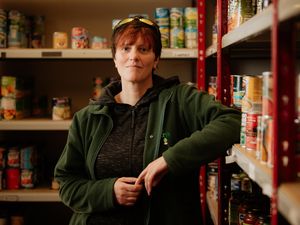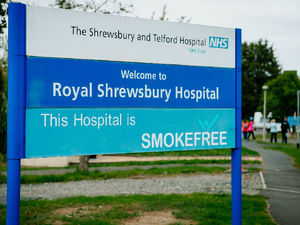Cost of living crisis being seen with more needing Shropshire food bank's help
More people are relying on help to eat, with that number set to "absolutely" increase, according to a Shropshire food bank project manager.

Liz Jermy, project manager at Oswestry and Borders Food Bank, said the Government needed to do more to prevent what has become the "normalised' use of food banks.
She said the impact of the cost of living crisis, particularly energy bills, was already being seen in the county, and is expected to increase in coming month as bills rise further.
The food bank has given out 100 tonnes of food over the last two years, and currently helps around 50 families – more than 200 people – every week.
Mrs Jermy said the nature of people using food banks was continuing to change, with many requiring help who have never previously needed it.
"We have seen more referrals from people that perhaps never thought they would use a food bank or that they would have to apply for benefits to top up their income," she said.
“For example, someone came in recently who said I have come from the JobCentre, who signposted me here, and they said ‘I have not been in a JobCentre for 20 years and now I am there, I have read the papers, about the cost of living across the country, and now I am feeling it myself’.
"Hearing from someone that has been in work that long, they can articulate what is going on but they do not have the resources to afford everything they need every week.
"We are seeing people who have been used to a working life – and many who are still in a working life."
Mrs Jermy said the current situation had been building for a long time, with the signs there before the Covid crisis.
She said: "The crisis for food and the cost of living is way before the pandemic. It has been a long time coming and we were already getting to crisis point before the pandemic."
Mrs Jermy said the Government had to do more to address the difficulties people face in earning enough money to look after themselves and their families.
She said the living wage had been a welcome move, but that unless workers could get a 'living number of hours', they would face the same difficulties.
"I feel the grass roots charities are the safety nets of our communities in our country, I feel we are holding people up and keeping the Government afloat," she said.
She added: "It is all very well to say go and get a job with more hours, and I think now the Government understands the living wage is an important buffer, but if you do not have a living number of hours you are not going to have enough to live."
Mrs Jermy said the food bank was hugely grateful to both its donors and its volunteers, whose generosity ensure it can provide the help people need.





